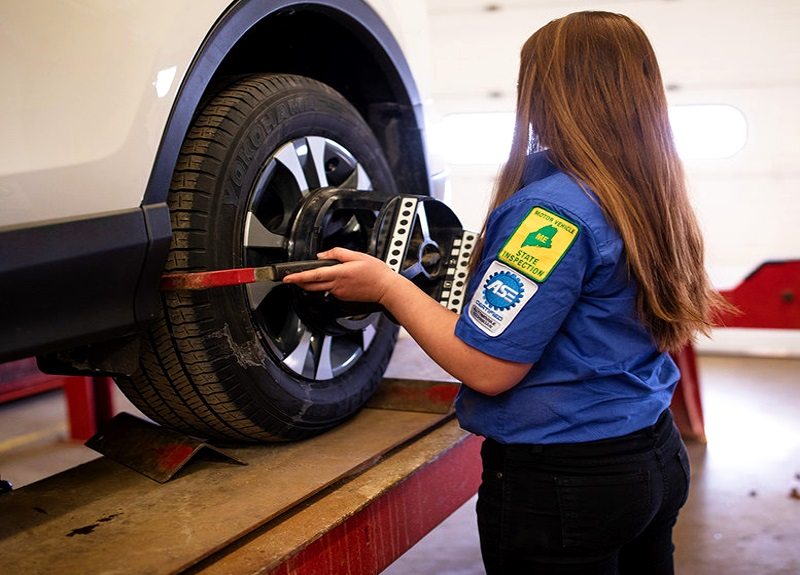Modern cars sometimes have separate wheel mounts and axle setups that require frequent wheel alignment service visits. When should you take your car out for regular servicing? Here's how to know if your car needs wheel alignment services.
How to Know if Your Car Needs A Wheel Alignment Service
Back when people rode wagons, they just fitted wooden wheels onto a hub axle. While their elementary braking and suspension systems worked okay for the time, they didn't have any adjustments to align the wheels but spun them straight on an axle.
However, modern cars are different. They travel relatively fast at average cruising speeds of 60 - 70 miles an hour. This calls for perfect front and rear wheel alignment to drive the vehicle in the intended direction without wavering towards either side.
Cars in the 60s had a lot of adjustments to mitigate long-term damages caused by regular wear and tear. The bolts that held the wheels were adjustable, which enabled you to move wheels in and out easily.
Modern cars sometimes have separate wheel mounts and axle setups that require frequent wheel alignment service visits. Let’s look at a few scenarios where your car might need front, rear, or all-wheel alignment.
Rear End Alignment
Earlier, you only had to check front-end alignments. This was because, back then, most cars were rear-wheel drives that had sturdy axles. No one had to worry about making adjustments in the back.
Conversely, you will find alignment bars for both the rear right and left wheels with modern cars. However, rear adjustments don't need to be altered or checked all that often unless you jump a pothole at high speeds or get hit in the back.
If you find your car's rear end to be out of alignment, you might also experience front-end vibrations that can potentially damage your tires and cause undue wear and tear on the insides. Many people bring their car with complaints in the front end without recognizing that often it could be the back that is causing the problem. Again, this could be because they got hit in the back or drove through deep gutters without much care.
Eventually, it’s for the workshop experts to determine if the back end was out of alignment, causing the front to act squirrelly. Major damages such as a bend in the strut or the a-frame might call for a lot more than just simple wheel alignment. You might need to incur the costs of parts replacements.
Front-End Alignment
To check whether your car needs front-end wheel alignment, you must see if your car pulls to a particular side or shakes at high speeds. Another sign you can look for is if your tyres are wearing unevenly. Check if you can find scalloped wear on the inside or the outside of your car’s tyres.
If you do, you’re looking at a 1/1000th of an inch’s precision adjustments to be made under loaded and unloaded conditions. It has to be done by an experienced professional with proper wheel alignment equipment. Laser-guided alignment systems are extremely accurate. They go to a thousand of an inch, find problems with your car’s alignment system, and make adjustments.
Conclusion
Modern vehicles generally have independent rear wheel and suspension setups in the back. This helps these vehicles ride and corner a lot better than older vehicles. Nevertheless, you have to realize it's yet another task for you to get your wheel alignment checked every once in a while to avoid unnecessary problems.
If your tyres are wearing evenly and free of any shaky motion, the odds are that your rear alignment is perfectly fine. However, you'd want the rear checked if you hit a big pothole or get in a wreck.
In fact, anytime you get in any kind of crash, you would likely require a four-wheel alignment to ensure that there isn't any damage. If such damage persists for a long time, it will wear the tyres out, and your insurance might not pay for it.



0 Comments